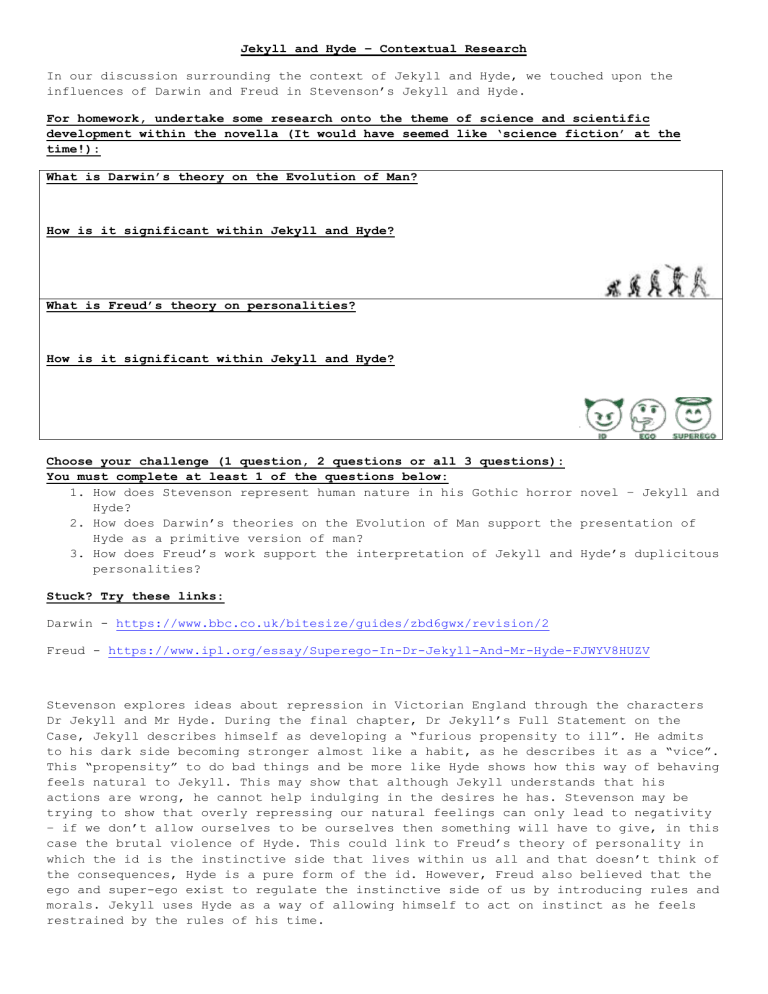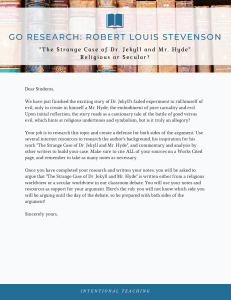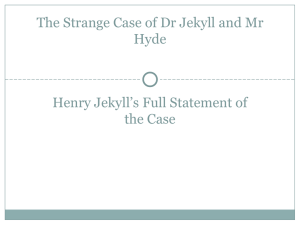
Jekyll and Hyde – Contextual Research In our discussion surrounding the context of Jekyll and Hyde, we touched upon the influences of Darwin and Freud in Stevenson’s Jekyll and Hyde. For homework, undertake some research onto the theme of science and scientific development within the novella (It would have seemed like ‘science fiction’ at the time!): What is Darwin’s theory on the Evolution of Man? How is it significant within Jekyll and Hyde? What is Freud’s theory on personalities? How is it significant within Jekyll and Hyde? Choose your challenge (1 question, 2 questions or all 3 questions): You must complete at least 1 of the questions below: 1. How does Stevenson represent human nature in his Gothic horror novel – Jekyll and Hyde? 2. How does Darwin’s theories on the Evolution of Man support the presentation of Hyde as a primitive version of man? 3. How does Freud’s work support the interpretation of Jekyll and Hyde’s duplicitous personalities? Stuck? Try these links: Darwin - https://www.bbc.co.uk/bitesize/guides/zbd6gwx/revision/2 Freud - https://www.ipl.org/essay/Superego-In-Dr-Jekyll-And-Mr-Hyde-FJWYV8HUZV Stevenson explores ideas about repression in Victorian England through the characters Dr Jekyll and Mr Hyde. During the final chapter, Dr Jekyll’s Full Statement on the Case, Jekyll describes himself as developing a “furious propensity to ill”. He admits to his dark side becoming stronger almost like a habit, as he describes it as a “vice”. This “propensity” to do bad things and be more like Hyde shows how this way of behaving feels natural to Jekyll. This may show that although Jekyll understands that his actions are wrong, he cannot help indulging in the desires he has. Stevenson may be trying to show that overly repressing our natural feelings can only lead to negativity – if we don’t allow ourselves to be ourselves then something will have to give, in this case the brutal violence of Hyde. This could link to Freud’s theory of personality in which the id is the instinctive side that lives within us all and that doesn’t think of the consequences, Hyde is a pure form of the id. However, Freud also believed that the ego and super-ego exist to regulate the instinctive side of us by introducing rules and morals. Jekyll uses Hyde as a way of allowing himself to act on instinct as he feels restrained by the rules of his time.



